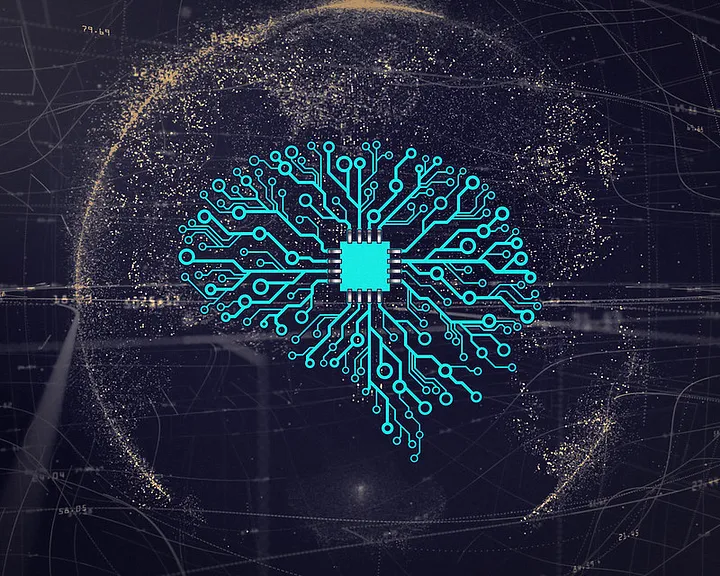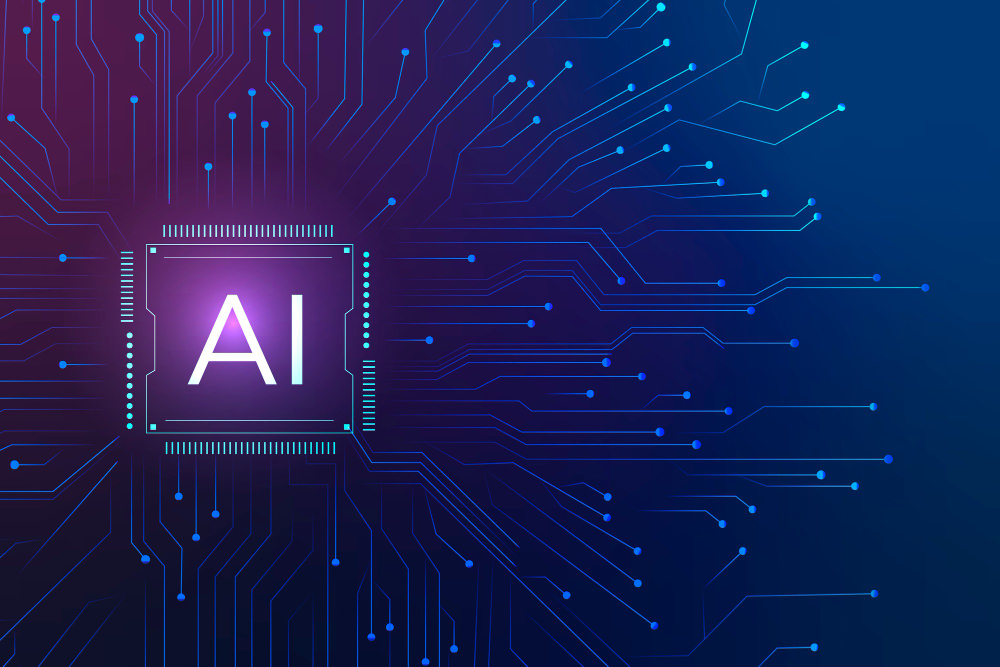
The mind-boggling comments I see every day from tech pundits and tech workers praising AI without calling for more regulation prompted me to blog about “Stochastic Parrots Day” a virtual one-day event organized in March by the Distributed AI Research Institute (DAIR) celebrating the 2nd anniversary of the paper called “On the Dangers of Stochastic Parrots: Can Language Models Be Too Big?” published by Dr. Timnit Gebru, Dr. Emily M. Bender, Angelina McMillan-Major, and Dr. Margaret Mitchell. The paper was heavily publicized because of the subsequent firing of Dr. Gebru and Dr. Mitchell from Google, which led to the founding of the Institute — a nonprofit aiming to be “a space for independent, community-rooted AI research, free from Big Tech’s pervasive influence” per its website.
After all the societal and political consequences brought on by Silicon Valley’s lack of regulation in the last 15 years, it’s obvious that we can’t repeat our mistakes. We need a global conversation about AI, and it seems none of our politicians are making this a priority, nor is civil society equipped to deal with the corporate PR machine launched by tech companies that have a vested interest in making AI the next big thing, without serious consideration for the potential harm it causes along the way.
Since the event took place, the AI debate got even more heated, with a controversial open letter calling for a moratorium on AI, rebuked by the authors of the Stochastic Parrots paper and other researchers. You can read here a quick overview of the various AI factions. Read this article for a timeline on AI ethics and women’s contributions (in an industry many would have us believe is run by white male experts).
Edit: today the proposed AI Bill of Rights (not written into law) released by the White House was discussed by Alondra Nelson, the Biden administration top AI person, and the AI Now Institute released a 2023 landscape report with a proposed policy strategy to “confront tech power”.
The conference I attempt to summarize below was live-streamed on Twitch and attended by about 1500 people. The very active conversation in the chat proves that there’s a strong desire for Town Halls and more diverse, public conversations on AI. A reading list was compiled after the conference if you want to dive deeper. A replay is available here [these are non-exhaustive notes and hopefully faithful to the speakers’ words].
Data transparency
All the panelists stressed the importance of transparency of the source data, which is hard to document for Large Language Models. “Just because a data set is big doesn’t mean it’s representative and we want people to know that data sets can lie about reality and have biases,” explained Dr. Bender, as the Stochastic Parrots paper was largely addressing this issue.
Making sure people know what is coming from an LLM, versus what is coming from another verified source, is all the more urgent given the disinformation wars leading to very real human consequences around the world. “When Stability AI came out they said ‘We hope it’s a compressed version of human knowledge’; and that is not possible. It’s irresponsible to market these products as such to the public,”
Pausing and evaluating instead of scaling up
Instead of Silicon Valley’s mantra “move fast and break things”, the call to action was mainly to press the pause button, but not in the manner of the now infamous open letter asking for a 6-month moratorium on AI, but in order to question the race for profits at the expense of ethics. “Our paper posed the question of when is an LLM too big? When the data set is too big to document,” Dr. Bender explained. “We need robust data credit, consent, etc. (…) We need to advocate for proper regulation with smaller models first.”
Dr. Timnit Gebru explained that the questions the Institute is raising around LLMS don’t question the technology itself (as opposed to longtermist ideologues and self-proclaimed experts who think AI is bound to destroy us all) but rather how they are built, marketed, and used. “LLMs are marketed as replacing humans, and we have to ask ourselves who is exploited in the process, and how it’s put out in the market.”
Exploited workers
One of the panels centered around the testimony from “Richard” an anonymous data worker in Kenya who talked about the mental health costs and the terrible working conditions of data labeling and content moderation for big corporations who outsource the work to foreign countries. He reported that workers were intimidated by management when they tried to advocate for themselves, despite suffering from trauma because of the content they worked on. “I want people to know how the people recruited are all vulnerable groups of people. And there’s so much hype for AI and so much exaggeration. In some of these organizations, like the one I worked at, you could tell it was all about profit and exaggeration. That’s how they got these vulnerable workers.” You can read more about this issue in this investigation: https://time.com/6247678/openai-chatgpt-kenya-workers/
Dr. Safiya Noble, author of Algorithms of Oppression added: “This is an incredibly complex ecosystem of labor and economics with teams all over the world, we have to think also of the relationship between software and hardware, miners extracting minerals, people treating e-waste, etc. (…) The tech industry spends trillions of dollars to keep these conversations from being at the forefront of the public consciousness. We should resist the total integration of these projects that lead to a completely ungovernable state of affairs. We need to be skeptical and organize for laws and policies at the local and international level to protect societies and vulnerable communities and have accountability for the extraction that is happening.”
She also warned the audience about the integration of these LLMs into our everyday lives into a suite of products (as announced by Google), potentially enabling mass surveillance.
Education
Boston public school teacher Belzie Mont-Louis shared that technology had been an equalizer for access, especially during the pandemic, but her concern now lies with the fact that “students always look for a hack” when it comes to reading and writing. So how do we ensure education is still about thinking? “ It’s less about preventing access to chatGPT, but rethinking education so students can still develop critical thinking.” ChatgGTP right now is increasing labor for underpaid, understaffed teachers who have to double-check everything and are not equipped to deal with the onslaught of AI tools.
Asmelash Teka, co-founder and CTO of translation tool Lesan.ai and a fellow at the Institute, added: “Coming from Tigray I think there’s a lot of potential to help with educational resources. So I’m still optimistic but I want to make sure it’s well done. Tools for humans, but not instead of humans.”
Mark Riedl, Associate Director of the Georgia Tech Machine Learning Center, added: “Education is not about information dumping, it’s about relationships and critical thinking. Teachers should not be replaced or be able to teach more massive lectures all at once, they need smaller classrooms, to work more individually (…) The solution is not about scaling and disrupting. I’m alarmed when people say AI will revolutionize education. First, you need to sit down with the people you are building for. As an AI researcher, you have no idea what people’s jobs actually are.”
“Scale down and engage vs scale up and disrupt!” someone in the chat summarized.
What of under-resourced languages?
Teka added the point of view of a country like Tigray, plagued by a genocide almost nobody talks about. “Access to technology is huge for us [in Tigray]. But regarding LLMs, if we take simple queries in our local language we don’t get good results. Social media, Meta, Twitter, etc. are full of hateful content that contributed to the violence. And now with chatGTP, I tried in our language and it doesn’t work. We are left behind and learn in languages that are not ours. In Tigray, our education problems are so different. It’s about access to books in our own language for books, etc. (…) We are an afterthought [for these tech companies].
The AI hype train
Riedl added about the AI hype train (perpetuated by tech companies and VCs who all have invested in AI): “Think of the importance of precision in science. An LLM is looking at its own data which is imprecise but it’s being marketed as reasoning as if it was forward-thinking. Actually, it’s backward thinking. The words “predict” don’t really apply, for example.”
“We make those systems appear so hype but at the core it’s a lot of data and people doing mundane tasks,” Asmelash Teka added. People started doing translation for example and those systems are using that. So who’s the human behind the task that AI is bringing up?”
Now we know, thanks to testimonies like Richard’s above, the not-so-hidden human cost of these tools.
International regulation issues
On a panel focused on calls to action, Nanjala Nyabola, a writer, political analyst, and activist based in Kenya, explained the importance of international regulations and the distribution of power as many countries without a legislative framework could not protect themselves. “Misinformation campaigns are happening in African countries that do not have a legislative framework. These are state-sponsored campaigns so it becomes very hard to figure out (..) Some countries are trying to develop capacities but it’s unequal. Rwanda is trying hard to invest in that [AI policy framework]. But overall for human-centered policies on AI, there’s much need to speak across geographical boundaries.” She also spoke of the plight of refugees and migrants at risk for surveillance, using the example of Germany, a big client for Palantir using AI to track refugees.
Job and economic transitions
Personally, I can’t believe Universal Basic Income is not on every AI enthusiast’s lips right now. The elephant in the room is the capitalist framework that won’t create a world where AI enables people to work less.
Riedl shared that even if AI “has the potential to improve the human condition, and could make our lives easier if it’s employed correctly, the issue with capitalism in the US is we measure productivity, so any minute you get back is going back to the hustle because your job demands more of you. What parts of the job are fulfilling to us? Employers could use AI to fire people, so there are a lot of decisions [to be made] about how to reallocate people’s time, and it’s not an AI issue, it’s about how society values workers.” Dr. Bender reminded the audience that if you replace creation, there’s always hidden labor behind these systems.
Artists fighting to protect their work and livelihoods
Artist Steven Zapata talked about artists in California who organized a class action lawsuit against Stability ai and DeviantArt; another class action by Illinois residents claims Lensa.ai is using people’s biometric data without their consent, and Getty Images is suing Stability AI as well. “It’s the wild west right now so a lot of these cases will scope out what the problems are. We need to find out what the laws and policies are going to be.” Zapata suggested an opt-in model where people can consent to their work being used.
Indeed worries about copyright infringement and the collection of people’s work without consent or compensation have been spreading. “There must be a way of doing that ethically. If the people making these things really believe these tools are about democratization, why then think it’s going to be easy? If it’s going to be that big of a revolution, then yes, you will need to work incredibly hard to make this work. You can’t be cavalier about this,” Zapata added.
Human right violations
Attorney Sarah Andrew, legal director of the nonprofit Avaaz in the UK, talked at length about the human rights issues connected to unregulated AI usage. “The word ‘ethical’ is very worrisome. Human rights have been litigated and it’s a lot less slippery to call it ‘human rights’ rather than the word ethical” [whose ethics?].
For example, she detailed the current AI policing system that was introduced by the Dutch, for street facial recognition on the street, which led to some people being wrongly identified and arrested. “EU regulations don’t benefit everyone, but maybe it can start identifying models. There’s a lot of harm happening right now and policymakers think it’s all in the future, but it’s happening now and we need to ground decision-making. We need human rights written in the law.”
An interesting tool that was shared in the chat to report violations enabled by AI: https://incidentdatabase.ai/
What’s next?
Activist Nanjala Nyabola emphasized the need to work across sector boundaries. “So many people in the world are using tools in translation and that’s a big issue with so many language barriers. We also have to get the stories of people whose voices are not included, versus the white male tech bros of Silicon Valley, our movement needs to be [made of ] inclusive coalitions.”
Artist Steven Zapata insisted on the importance of education and political organizing: “We need to educate the representatives and learn how to generate political will before something disastrous happens. Few political representatives are really interested right now and some who are interested don’t feel comfortable getting involved because they are scared to seem like the government is getting in the way of businesses, which is devastating. [Tech workers] you need to engage with the people you are building products for or on the backs of.”
Tech workers, engage with accountability
Attorney Sarah Andrew concurred about the need for tech workers “to engage with their responsibility, be accountable and take this seriously.”
Nyabola added, “There’s a lot of willful ignorance from a lot of tech workers on how their work is being deployed. We need people to think about that in the tech sector. How is my product being used?”
The environmental question did not come up that I can recall, but it was raised in the Stochastic Parrots paper and others— an issue we need a lot more transparency on and research independent from the private companies benefitting from AI. What is going to be the climate cost of building and using these models? All questions that everyone from all corners of government, civil society, business, media, and more should be deeply engaged in before it is too late.
Source : Medium.com





 No products in the basket.
No products in the basket.